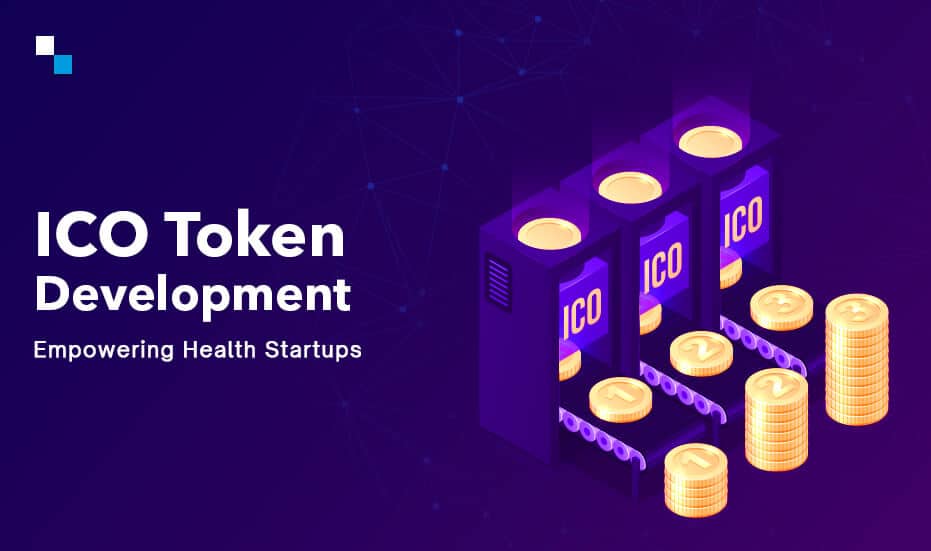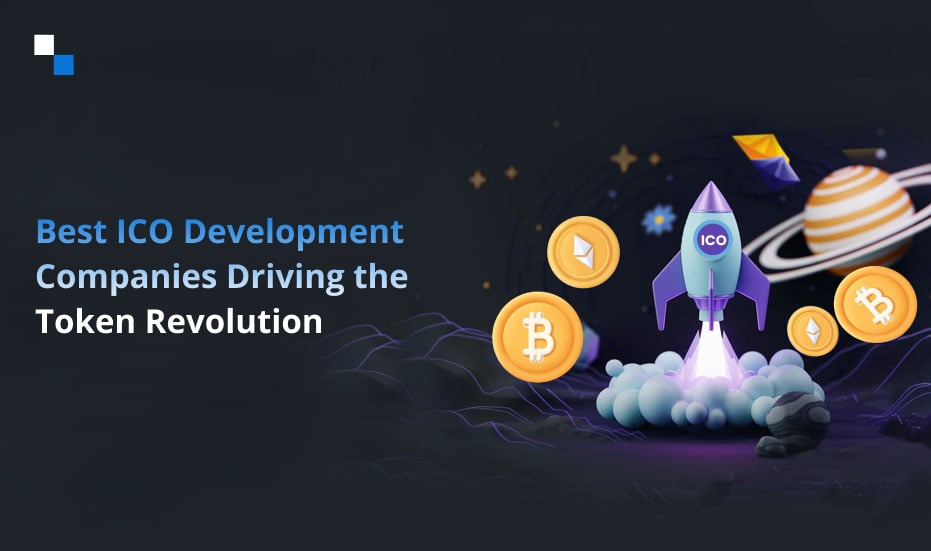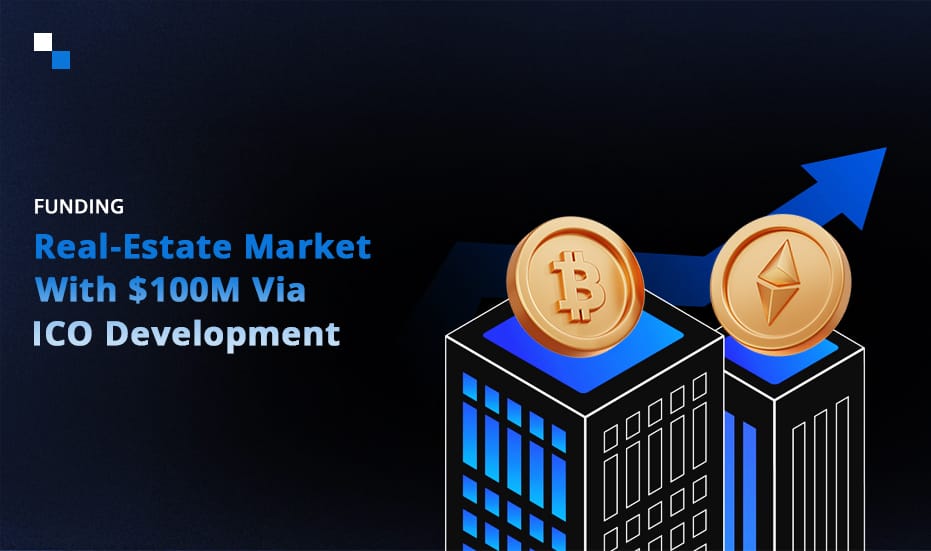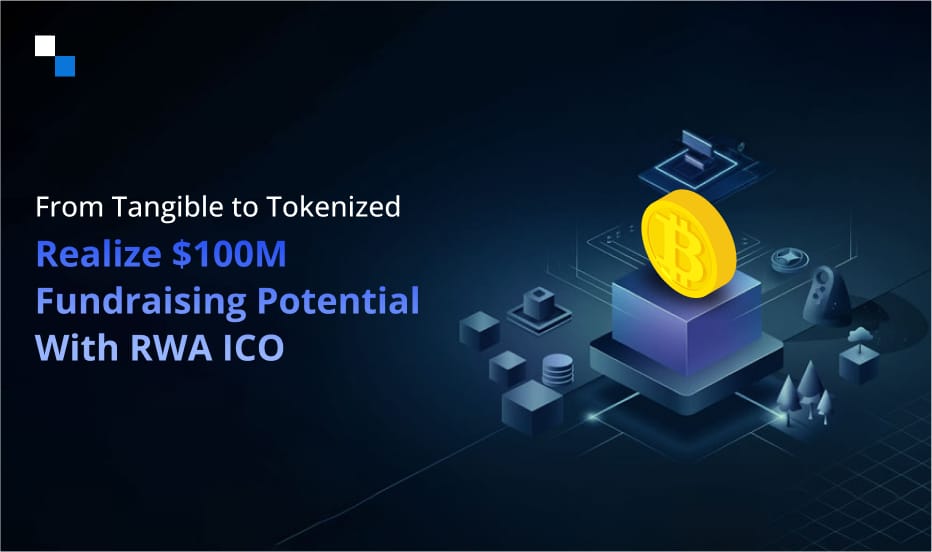The traditional healthcare funding landscape has often been riddled with challenges, making it difficult for groundbreaking medical projects and initiatives to secure the necessary financial backing. However, the emergence of blockchain technology and Initial Coin Offerings (ICOs) has ushered in a new era of healthcare funding. ICO development presents a unique opportunity for healthcare projects to raise funds from a global pool of investors and contributors, fostering innovation, research, and advancements in the field of medicine.
The healthcare funding landscape is expected to continue to evolve in the coming years. As the industry becomes more digitalized and innovative, new sources of funding, such as ICO token development will emerge at a rapid pace. Let’s explore what other options are already available:
The Current Healthcare Funding Landscape
Traditional healthcare funding models often involve complex bureaucratic processes, long waiting times, and limited accessibility, leaving many patients underserved.
In many countries, healthcare services are primarily funded and provided by the government. Governments allocate a significant portion of their budget to healthcare, covering essential services and public health initiatives. However, government funding may not always be sufficient to meet the growing demands of an aging population and advancements in medical technology.
In some regions, especially in low and middle-income countries, a significant proportion of healthcare funding comes from out-of-pocket payments by patients. This form of funding can lead to financial barriers to access, especially for vulnerable populations.
Charitable donations and philanthropic contributions from individuals, corporations, and foundations are essential for supporting healthcare initiatives, medical facilities, and research endeavours. Philanthropy can be a significant source of funding for medical institutions and projects.
At the same time, venture capital (VC) and private equity (PE) firms are also showing increasing interest in the healthcare sector. They invest in healthcare startups and innovative companies that offer promising products, services, or technologies. These investments often target digital health, medical devices, and biotechnology companies.
Different countries and healthcare systems adopt varying approaches to address funding challenges and deliver accessible and quality healthcare services to their populations. Today, ICO token development has also been explored as an alternative funding source for healthcare projects, where individuals can directly support medical treatments, research, or health-related startups.
The Need for Innovative Healthcare Funding
The healthcare industry faces numerous challenges in funding and delivering quality services to meet the evolving needs of patients and the ever-changing medical landscape. Innovative healthcare funding models are pivotal to meeting the healthcare industry’s demands, promoting equitable access to services, and driving advancements in medical science and technology.
Embracing ICO development as a new funding approach can usher in a transformative era of healthcare that caters to the needs of all individuals and communities.
Here are some key points highlighting the need for innovative healthcare funding:
1. Rising Costs
Healthcare costs continue to escalate, placing immense financial strain on individuals, families, and healthcare providers.
2. Access and Equity
Innovative funding models can improve access to healthcare services for marginalized and underserved populations, ensuring equity in healthcare delivery.
3. Advancing Medical Technology
Funding is critical for the research and development of advanced medical technologies, treatments, and pharmaceuticals.
4. Chronic Disease Management
With the prevalence of chronic diseases increasing, innovative funding can support comprehensive and long-term management strategies.
5. Digital Health and Telemedicine
Innovations in digital health and telemedicine require funding to expand reach and improve remote healthcare services.
6. Preventive Care
Funding preventive healthcare measures can lead to better health outcomes and cost savings in the long run.
7. Global Health Challenges
Funding is crucial for addressing global health crises, such as pandemics and infectious diseases.
8. Aging Population
As the population ages, innovative funding can support geriatric care and services for the elderly.
9. Mental Health Support
Adequate funding for mental health services is essential to address the growing mental health crisis.
Want to raise funds through ICO for your upcoming healthcare venture?
Schedule Free DemoThe Rise of ICOs in Healthcare
ICO development is a novel fundraising method that leverages blockchain technology to create and sell digital tokens. These tokens represent value and can be used to access specific services or benefits within the project’s ecosystem. ICOs have gained significant traction across various industries due to their ability to democratize funding, eliminate intermediaries, and reach a global audience of potential investors.
In the context of healthcare, ICO token development has proven to be a game-changer. Startups and established healthcare organizations can bypass traditional funding avenues and directly connect with a vast network of cryptocurrency enthusiasts and investors who share a passion for advancing healthcare solutions.
Advantages of ICO Development for Healthcare Funding
As the healthcare industry continues to evolve, ICOs are likely to play an increasingly important role in funding new innovations. Here are some of the benefits of healthcare funding through ICO token development:
- Global Accessibility
ICOs allow healthcare projects to attract investors from around the world. This global reach expands the potential pool of contributors and ensures access to a diverse range of expertise and perspectives.
- Democratizing Investment
ICOs democratize the investment process, allowing individuals of all financial backgrounds to participate. Token sales often have lower entry barriers than traditional investment options, enabling smaller investors to contribute to projects they believe in.
- Transparency and Trust
Blockchain’s inherent transparency ensures that all transactions and token allocations are recorded on a public ledger. This transparency enhances investor confidence and trust in the project’s legitimacy.
- Incentive Alignment
Token economies can align incentives between developers, healthcare providers, and investors. As the project’s success directly impacts the token’s value, all stakeholders are motivated to work toward the project’s success.
- Efficiency
ICOs are a more efficient way to raise funds than traditional methods, such as venture capital or bank loans. This is because ICOs can be completed online and do not require the same level of regulatory oversight.
Real-Life Examples of Healthcare ICOs
When we discuss the need for ICO development for successful fundraising, we must also consider that some highly effectual healthcare ICO projects have already made strides in leveraging blockchain technology for funding and innovation:
1. MedTokens
MedTokens is a blockchain-powered platform that facilitates peer-to-peer funding for medical research and treatments. Patients can issue tokens representing their medical needs, and investors can fund these tokens directly, reducing bureaucratic inefficiencies and ensuring rapid access to treatments.
2. HealthChain
HealthChain aims to build a decentralized medical records system where patients have full control over their data. Through an ICO token development, they raised funds to develop a secure and interoperable blockchain platform for storing and sharing medical records.
3. Dentacoin
Dentacoin is a cryptocurrency that aims to improve dental care worldwide by incentivizing patients to maintain good oral hygiene habits. Dentacoin raised over $100 million in its ICO, which it plans to use to develop new dental care products and services.
4. Medico
Medico is a healthcare platform that uses blockchain technology to connect patients, doctors, and researchers. Medico raised over $10 million in its ICO, which it plans to use to develop the platform and expand its reach.
5. HealCoin
HealCoin is a cryptocurrency that aims to make healthcare more affordable and accessible. HealCoin raised over $5 million in its ICO, which it plans to use to develop new healthcare products and services.
6. Spherium Health
Spherium Health is a blockchain-based platform that aims to improve the efficiency of clinical trials. Spherium Health raised over $1 million in its ICO, which it plans to use to develop the platform and expand its reach.
7. MediBloc
A blockchain-based platform for managing and sharing medical data. MediBloc raised over $70 million in its ICO.
8. Wellcoin
A cryptocurrency that aims to incentivize healthy living. Wellcoin raised over $1 million in its ICO.
These are just a few examples of the many healthcare ICOs that have been launched in recent years. As the healthcare industry continues to evolve, ICO token development is likely to play an increasingly important role in funding new innovations.
Get Obligation Free Quote
[widget id=”custom_html-3″]
ICO Development For Healthcare Industry- Challenges and Solutions
Running a healthcare Initial Coin Offering (ICO) comes with its own set of challenges, given the sensitive nature of healthcare data and the regulatory environment surrounding the industry. However, with the help of blockchain experts, some of these challenges can be overcome. Here are some of the key challenges and potential solutions:
- Regulatory Compliance:
- Challenge: Healthcare ICOs must comply with strict regulations to protect patient data and ensure transparency.
- Solution: Blockchain experts can assist in designing a compliant ICO model, ensuring that the platform adheres to relevant data protection and privacy laws. They can also help implement identity verification protocols to prevent fraudulent activity and ensure that only eligible investors participate in the ICO.
- Security and Privacy:
- Challenge: Healthcare data is highly sensitive, and security breaches can have severe consequences.
- Solution: Blockchain experts can design a robust and secure blockchain infrastructure for the ICO platform. By implementing encryption and decentralized storage, they can ensure that patient data remains confidential and tamper-proof. Smart contracts can also be utilized to enforce privacy rules and permissions for accessing sensitive information.
- Trust and Transparency:
- Challenge: Building trust with investors and participants is critical for the success of a healthcare ICO token development campaign.
- Solution: Blockchain’s transparent nature can be leveraged to provide real-time updates on the use of funds and the progress of the healthcare project. Blockchain experts can implement mechanisms to display fund allocation, research milestones, and other relevant information to build investor confidence.
- Token Utility and Adoption:
- Challenge: Ensuring the utility and adoption of the healthcare tokens beyond the ICO phase.
- Solution: ICO development experts can design a tokenomics model that incentivizes token holders to use the tokens within the healthcare ecosystem. This could include access to discounted healthcare services, participation in medical trials, or benefits within healthcare partner networks.
- Scalability:
- Challenge: As the healthcare ICO gains popularity, the platform must handle increased transaction volumes efficiently.
- Solution: Blockchain experts can design and implement a scalable blockchain architecture to accommodate the growing user base. Solutions like sharding and off-chain transactions can help improve the platform’s scalability while maintaining security.
- Interoperability:
- Challenge: Healthcare involves various stakeholders and systems that need to interact seamlessly within the ICO platform.
- Solution: Blockchain experts can implement interoperability standards to enable smooth data exchange between different healthcare entities and systems.
- Token Liquidity:
- Challenge: Ensuring liquidity for the healthcare tokens on cryptocurrency exchanges.
- Solution: Blockchain experts can facilitate partnerships with reputable cryptocurrency exchanges and work on marketing strategies to increase token visibility and demand.
- Community Engagement:
- Challenge: Building an engaged and supportive community around the healthcare ICO.
- Solution: Blockchain experts can assist in developing community engagement strategies, including social media campaigns, webinars, and educational content to keep investors and stakeholders informed and involved.
Conclusion
ICO development for healthcare funding is a promising avenue for driving innovation, research, and development in the healthcare sector. ICOs offer unprecedented opportunities for healthcare projects to secure global funding and engage with a diverse community of investors by leveraging blockchain technology and tokenization. However, to fully harness the potential of ICOs, projects must address regulatory challenges, prioritize data privacy, and maintain transparency and accountability throughout the fundraising process. As the healthcare industry continues to evolve, ICOs have the potential to revolutionize healthcare funding, enabling groundbreaking advancements that benefit patients worldwide.
Launching a healthcare ICO requires careful planning, a strong focus on regulatory compliance, and a secure infrastructure to protect sensitive data. Partnering with blockchain experts At Antier can significantly enhance the chances of success, as they bring their expertise in ICO token development and its application to the healthcare industry.
Want to initiate a healthcare ICO and unlock new avenues for funding medical innovations and improving patient care? Talk to us!





